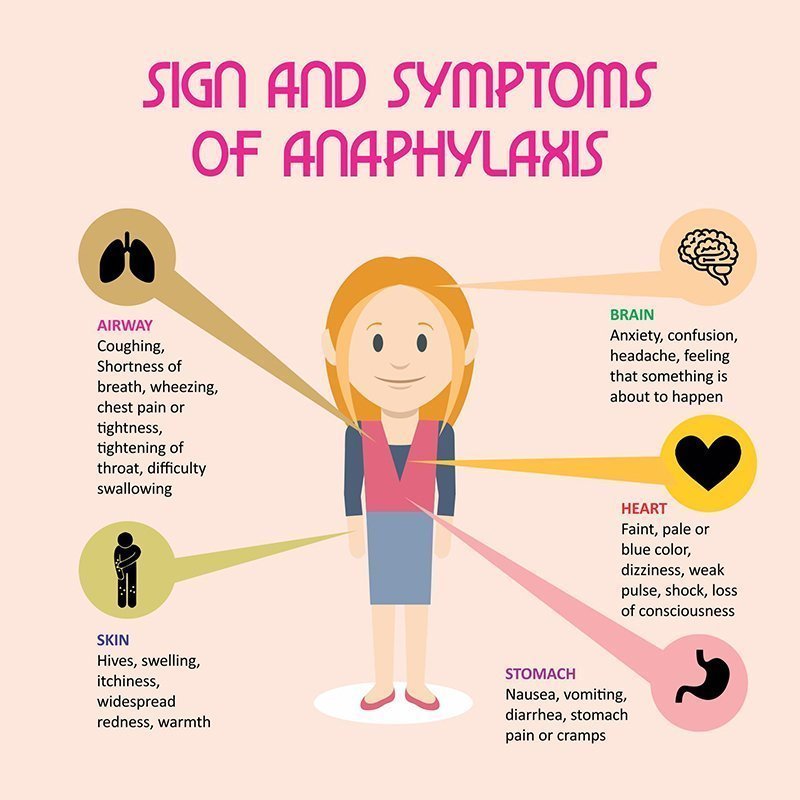
Anaphylaxis is very serious. It’s a potentially life threatening allergic reaction to foods, medications and insect stings. And it can occur very quickly — sometimes in just a few minutes after exposure to the allergen.
The Causes
Eight foods account for the the majority of food allergy reactions in the United States. Peanuts, eggs, milk, tree nuts, wheat, fish and shellfish, and soy are the major culprits. But remember, any food sensitivity can cause anaphylaxis. Sometimes (but rarely) exercising after eating a problem food is a trigger. People who suffer from asthma and have food allergies are at a greater risk for anaphylaxis. Triggers are easily identified; it’s very rare to not know the cause.
The Symptoms
Common symptoms include hives, itching, flushing and swelling of the mouth area, including the tongue. Gastrointestinal symptoms include cramping, vomiting and diarrhea. Anaphylactic shock is indicated by very severe reactions such as the swelling and tightening of the airways and chest. This results in breathing difficulties, chest pain, reduced blood pressure, dizziness, confusion, headaches and loss of consciousness.

The Complications
Anaphylactic shock can result in very serious complications. When airways constrict, breathing is severely limited and less oxygen is sent to the heart. Potential complications include:
- Kidney failure
- Arrhythmia (when the heart beats too quickly or too slowly)
- Cardiogenic shock (when the heart doesn’t pump enough blood through the body)
- Heart attack
- Brain damage
- Death
The Treatment
The best way to prevent anaphylaxis is to avoid allergens. Know how to identify the symptoms and what to do if and when a reaction is triggered. If the reaction is severe, seek medical care immediately.
EpiPens — epinephrine auto-injectors— are the most commonly prescribed treatment for anaphylaxis. They should be used as soon as symptoms start. Avoid oral medication if you’re experiencing breathing difficulties. See your physician, even if you’ve used the EpiPen. It’s very likely the reaction will recur once the medication has worn off.

If you’re with someone who goes into anaphylactic shock, immediately call 911 and then administer assistance until the EMTs arrive. Get the patient comfortable and raise their legs. You want to keep blood flowing to vital organs. If they have an EpiPen, use it. If the patient isn’t breathing, give them CPR.
With life threatening allergic reactions continuing to rise, knowing what anaphylaxis is and how to respond may very well be the difference between life and death. It really is that critical.



